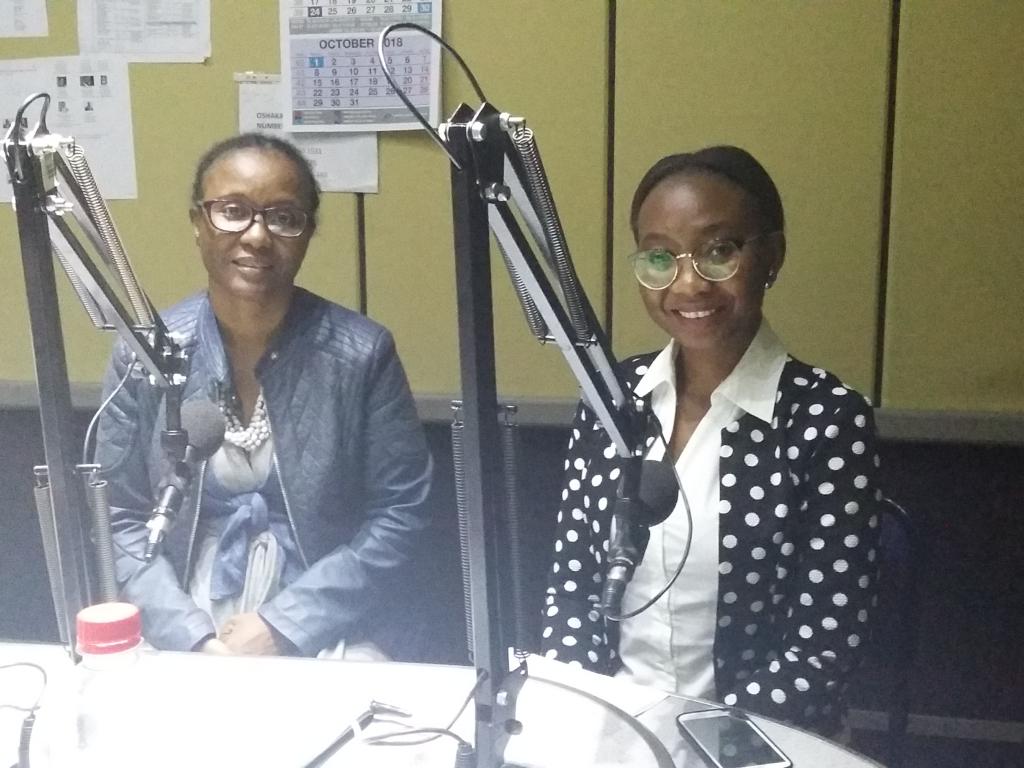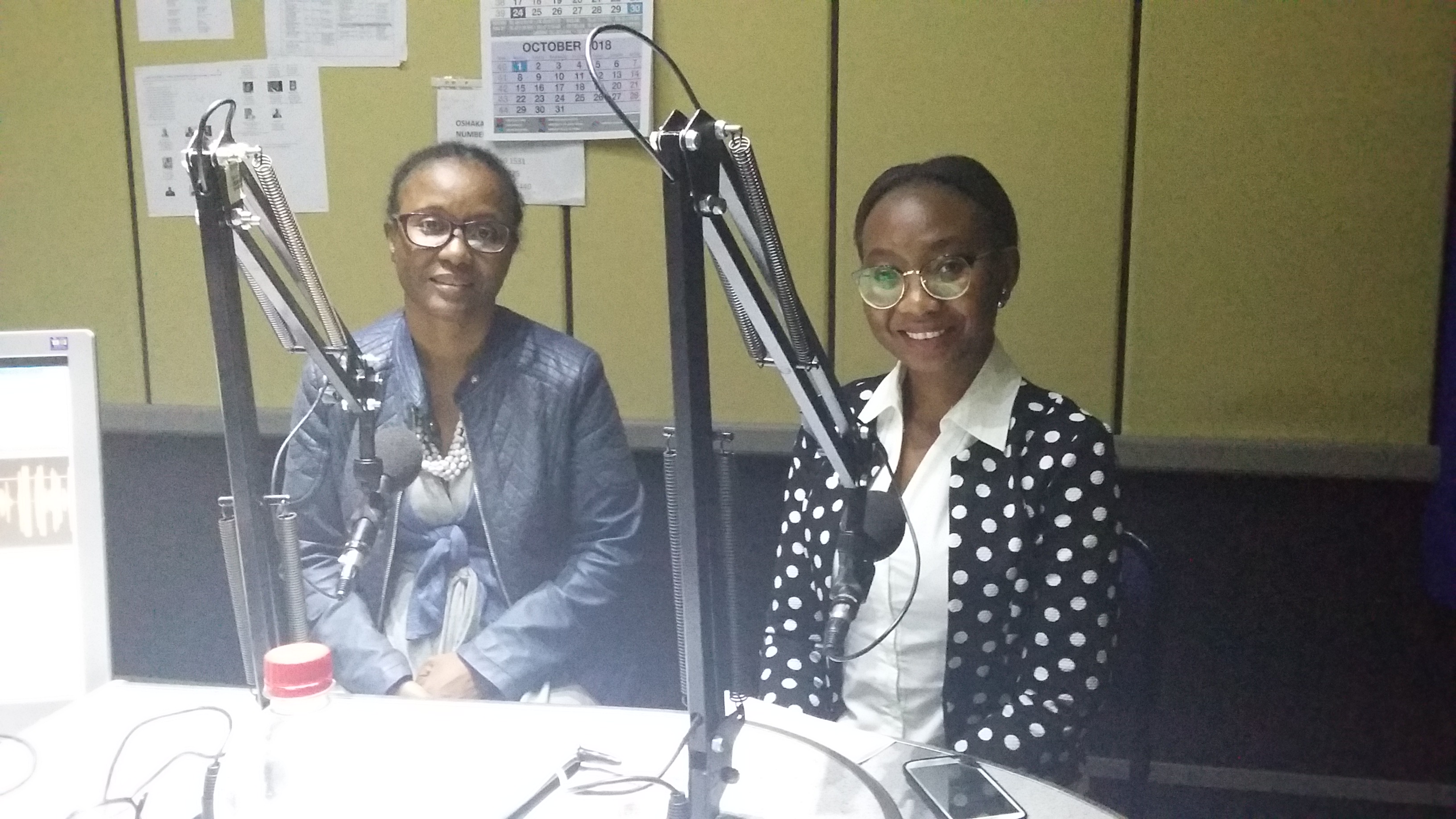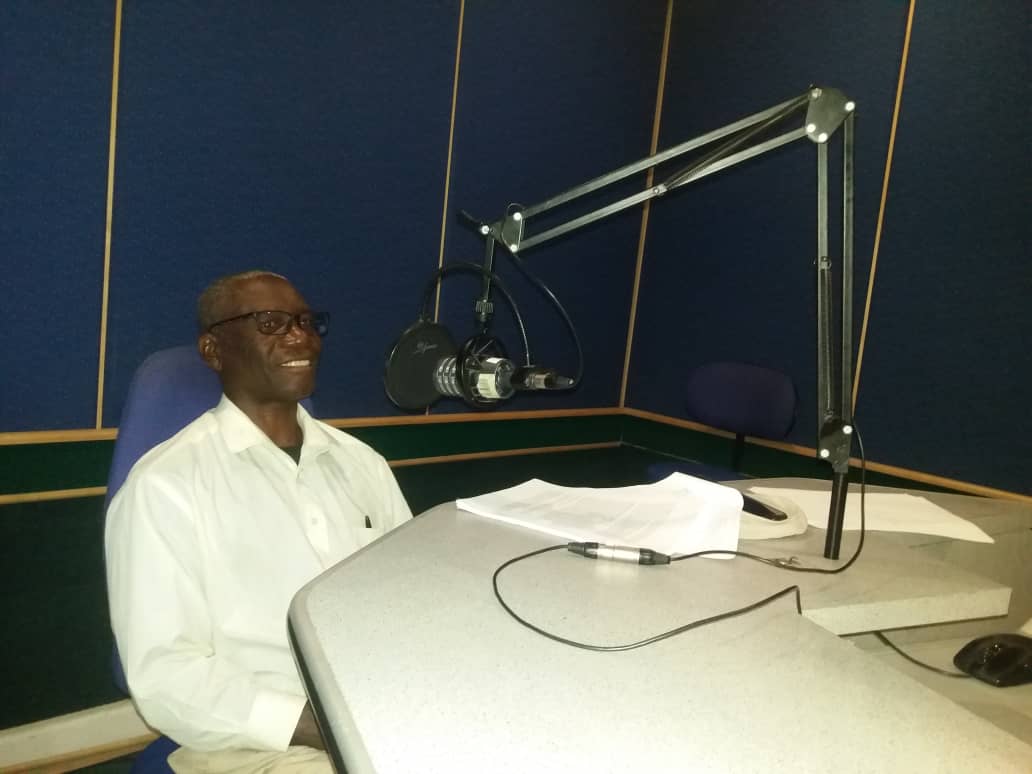Gender, agriculture and climate change: Namibia radio show update

ASSAR and Kati-FM's climate change radio shows takes a look at gender, agriculture, and climate change policy and action in Namibia. Ndamonako Anna Iita reports on episodes five, six and seven.
The seventh episode of ASSAR and Kati-FM’s Namibia climate change radio show, which aired Monday, September 10, looked at gendered vulnerabilities to climate change. It focused on how men and women respond to climate change, the gender and cultural norms that are preventing adaptation in ASSAR’s Namibian study sites, and the ways men and women have adapted in response to climate change.
Gender is not just about women or men. It includes the roles, behaviours, expressions and identities a society may construct or consider appropriate for women, girls, men and boys. Gender plays a role in determining how people see themselves and others and how they act and interact. It informs the arrangement of roles, responsibilities and relations between men and women of different social groups, ages, educational and marital statuses.These roles, responsibilities and relations shape people’s perceptions of risks and their actual vulnerabilities, and vary across place, time and social position.
Gender important to consider in adaptation planning

Margaret Angula, ASSAR’s gender expert in Namibia, explained that discussions about gender and climate change are important for guiding adaptation planning for different gender groups instead of just having one option for an entire community. Proposed adaptation measures for Namibia’s vulnerable communities, such as those living in the Omusati region, should address gendered issues on the ground in vulnerable communities since women and men have different roles and responsibilities and experience climate change differently.
“With relation to the climate impacts on crop production, women are more vulnerable as they are the ones who are at the forefront of these activities, whereas when it comes to impacts on livestock men are more vulnerable [since] a man is associated with his livestock herd,” said Angula. “Generally, men have better coping strategies in comparison to women because they have access to information and can read newspapers, they listen to the radio, they have more money and cattle and some even own cars to go visit extension offices if need be. [This places] them in a better position to be better prepared for climate related impacts.”
Angula highlighted the various cultural norms and practices hindering adaptation. In ASSAR’s study sites in rural villages in north-central Namibia, for example, culturally, a woman is identified by her crop field and is responsible for running the household. Some cultures do not permit women to make decisions or raise their opinions unless she is head of the house. However, there are still instances whereby women in this position cannot make decisions due to other cultural norms. Women are discouraged from bringing forward their ideas and therefore become demoralised about contributing to discussions. Generally, their access to information is limited. It is important that climate change interventions do not add to the workload women already bear. On the other hand, men are the decision-makers and main breadwinners: they are respected for the number of cattle they own.
Angula advised that policymakers should acknowledge the fact that women and men experience different climate change vulnerabilities. There should be a focus on ways that men and women can work together to complement each other and create a conducive environment where men and women are both onboard with adaptation solutions and do not have antagonistic roles. All voices should be heard and women should be allowed to participate in decision-making.
ASSAR’s research on gender has revealed that both genders have observed climate-induced changes but do not know what is causing it. Interestingly, women have already started using methods such as preserving seeds, using drought-tolerant seeds, and altering their planting seasons. There are also some groups within these communities who believe that climate change is “God’s doing” and are not making any efforts to adapt. It is crucial to share information with them to promote adaptation responses.
Adaptive strategies need to pay attention to the division of work between men and women to ensure that women’s everyday lives are not overburdened and that suitable technologies are put in place to support their performance. This could, for example, include ensuring water for domestic use in the context of scarcity. Adaptive strategies need to work with social norms that shape what kind of activities are appropriate for men and women to engage in. Taking social norms into consideration can improve women’s rights.
Angula discussed how attention needs to be paid to the growing resource conflict around the use and management of water and land, and the underlying causes, particularly with the monetisation and commodification of these resources. More appreciation needs to be given to women since they are taking part in new forms of livelihood diversification and collective action. Trade-offs between short-term coping strategies and longer-term adaptation are becoming more apparent. Studies on climate change vulnerability and impacts and identification of adaptation strategies should be done from a gender-sensitive perspective.
In closing, Angula said there is a need to look at gender in a way that factros in social differentiation and seeks to educate, motivate and encourage women to take part equally in decision-making.
New agricultural practices aid with adapting to climate change
Farming productively in dryland regions is a challenge because these areas are climate change hotspots characterised by aridity, water scarcity, poor soil fertility and a combination of social factors such as isolation, marginalisation and poverty. Communities living in these areas generally have few viable alternatives to agriculture-based livelihoods.
The challenges faced by farmers in drylands formed part of the discussions in the fifth episode of ASSAR and Kati-FM’s climate change radio, show which aired Monday, September 3. The episode focused on the agricultural practices farmers should adopt to adapt to climate change, in addition to the initiatives and projects Namibia’s Ministry of Agriculture, Water and Forestry (MAWF) has put in place to assist communities.
In some cases, farmers in Namibia’s drylands have started adopting climate-smart agricultural practices. These include conservation tillage, intercropping, drip irrigation and small-scale rice farming. However, most farmers continue to struggle to some degree. For example, a subsistence farmer might find it difficult to find the balance between keeping enough healthy cows to pay for his uncle’s funeral and still have enough money in the bank for when his daughters get married.
Farmers advised on farming methods
Martin Embudile, MAWF’s acting deputy director for the north-central regions, was the show’s guest speaker. He shared insights on new ways of ploughing that allow for soils to retain moisture longer, how farmers can deduce rainfall patterns from weather forecasting information to guide when they should start planting, as well as the use of improved seeds -- such as the Okashana (a drought-resistant millet), which grows and matures faster (2-3 months) compared to traditional varieties.
Crop farmers were advised to make use of traditional storage systems but ensure effective protection of grains from fungal and insect infections. He stressed that for farmers to improve their crop yields they should make use of manure. Government has arrangements in place to subsidize them.

Farmers were also encouraged to refrain from old ways of ploughing by adopting conservation agriculture methods that conserve soil microorganisms as these cause little soil disturbance. Communities were encouraged to form partnerships and take part in projects such as ASSAR to benefit from capacity-building initiatives.
“Livestock farmers should develop a culture of destocking by selling old animals to create space for younger animals when the carrying capacity is too high and these farmers should create a networking group to carry out organised rotational grazing in communal areas,” said Embudile. “To improve their food security, farmers are encouraged to invest in fruit trees which in turn offer shade and combat deforestation.”
Embudile explained that the projects put in place by the Ministry are guided by the National Drought Policy (NDP). Some of the initiatives currently underway include a ploughing system where the government deploys tractors and farmers are subsidized for ploughing. The agricultural extension services sells improved seeds to farmers and a program has been initiated where farmers are encouraged to plant a mixture of rice and mahangu (mixed cropping) during floods. This is because the rice absorbs excess water, allowing the mahangu crops to grow. The Ministry has extension offices in all the constituencies and farmers are encouraged to make use of the services offered by the ministry, he advised.
A caller suggested that officials should always speak in ways that people on the ground can understand. Communities want to know which types of drought-resistant seeds the Ministry is advocating for. The information on seed availability should be communicated timely and the Ministry should ensure that enough seeds are available for the public to buy. Another caller wanted insight on whether drought-tolerant seeds will grow in any soil type.
Enablers for climate change adaptation in Namibia
Semi-arid northern Namibia is challenged by extreme events such as droughts and floods, which are projected to become more frequent and severe in future. This makes it imperative to discuss what enables adaptation to climate change in Namibia -- from a policy perspective, to the ways in which communities can adapt to climate change.
Sion Shifa, from Namibia’s Ministry of Environment and Tourism (MET), was the in-studio guest for the fifth instalment of the climate change radio show, which aired August 28, 2018. Shifa shared insights about current policies that enable climate adaptation in Namibia and what the Ministry is doing towards addressing climate change. He referred to the National Climate Change Strategy and Action Plan, which lays guiding principles for responding to climate change and identifies priority action areas for adaptation and mitigation measures.This document was developed in 2011 and aims to contribute to the attainment of sustainable development in line with Namibia's National Development Plans, Vision 2030, and Harambee Prosperity Plan by strengthening national capacities to reduce climate change risk and build resilience for climate-related shocks.
Shifa elaborated on the current funding streams available that enable climate change adaptation, such as the Green Climate Fund and the Adaptation Fund -- for which the Environmental Investment Fund (EIF) and the Desert Research Foundation of Namibia (DRFN) are the respective implementing entities. He referred to the three projects currently being implemented by EIF, a groundwater desalination project under the DRFN, and a recently launched project targeting vulnerable communities in Kunene which will also be implemented by EIF. In total, Namibia has received approximately N$ 370 million to implement climate change adaptation projects. The projects are guided by the country’s National Development Plans and the Ministry is ensuring that funding for adaptation projects is coupled with stakeholder consultations for which they have received readiness support from the Green Climate Fund. This support will strengthen institutional capacities at the Ministry and improve coordination for planning and climate financing programming in Namibia. The Ministry has realised that funding for adaptation projects should be coupled closely with ongoing stakeholder engagement and education about climate change at the grassroots level.
Shifa explained how the Ministry is entrusted to coordinate all issues pertaining to climate change in the country. It established the National Climate Change Committee (NCCC) in 2001 as per cabinet directive and its role on this committee is to oversee and provide guidance to the government on climate change issues. The Ministry is collaborating its efforts with communities, channeled through local authorities. He encouraged community members to contact their local councillors about climate related matters or contact the Ministry directly.
From the ASSAR perspective -- insights were shared with listeners on the differences between climate change and adaptation. Proposed adaptation measures for communities include using information from seasonal climate forecasts and early warning systems, changing planting and harvesting times, diversifying crops and livestock, storing grain and fodder, using social networks for assistance, and empowering women. ASSAR's research has also recommended that adaptation can be integrated with Disaster Risk Management (DRM). Since DRM has already played a key role in driving the climate change agenda, integrating adaptation with DRM will give it a chance of being a development priority.
Callers raised concerns about the seriousness of climate change. One caller wanted to know if climate change is permanent or a temporary event. Another asked for advice on what do with fodder (iiyenguti) that remains in fields after harvesting: should this be cleared from fields, as is the current norm? Or should it be left in the fields? Another wanted advice on whether farmers could harvest grass for fodder along the road, and if government is willing to assist them with transport.
The eighth episode of Namibia and Kati-FM's climate change radio show airs Monday, September 17, 2018, at 7 p.m.
Ndamonako Anna Iita is a media graduate from the University of Namibia who is currently working at the Namibian Broadcasting Corporation as a freelance indigenous language news presenter, producing news stories and presenting them every Monday at 5 p.m. She is employed by the Desert Research Foundation of Namibia on a two- month internship and is doing translations for the ASSAR project and co-hosting the ASSAR climate change radio series.
Photos: 1 - ASSAR's Margaret Angula and Ndamonako Anna Iita in studio. Credit: Bernadette N. Shalumbu-Shivute.
2 - Martin Embudile, MAWF’s acting deputy director for the north-central regions, in studio. Credit: Bernadette N. Shalumbu- Shivute.